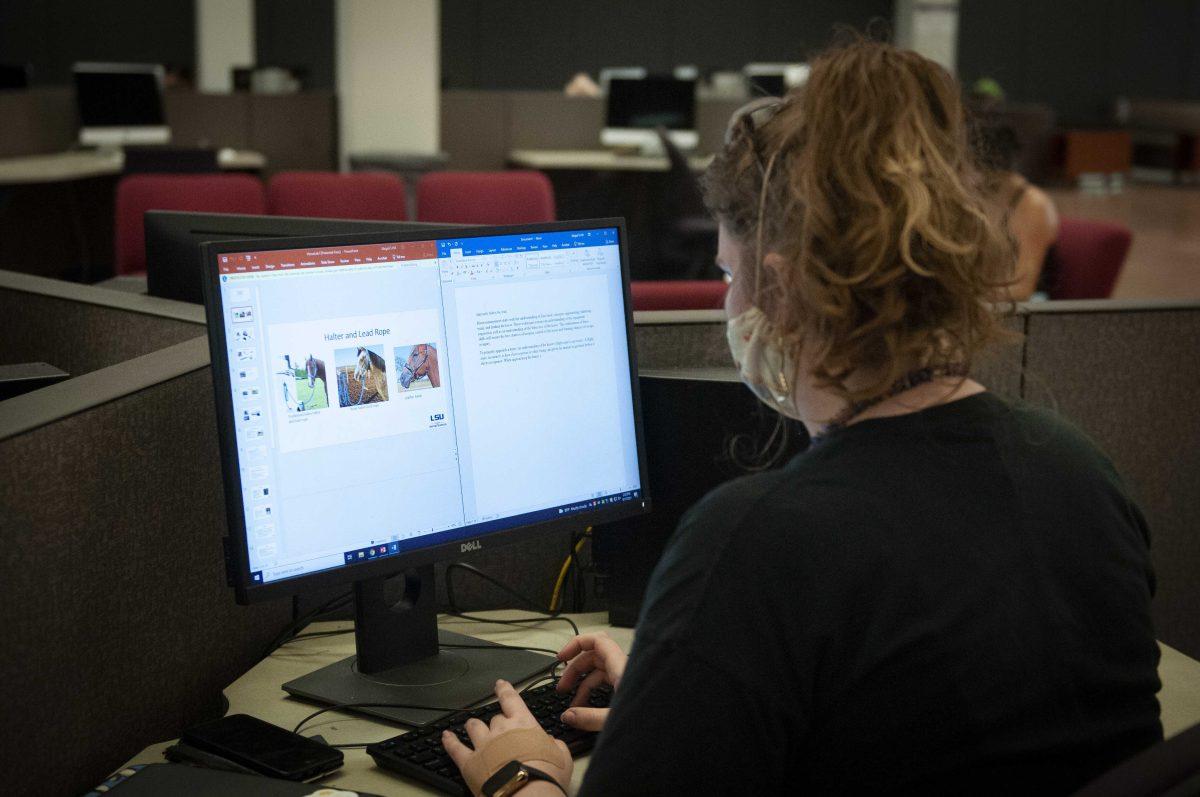The LSU computer science program is in the process of adding new courses to encourage students to pursue careers in cybersecurity.
The initiative, called the Forensic and Incident Response Environment, or FIREStarter, will develop a cyber range in the LSU Digital Media Center, where computer science students can gain experience in cybersecurity, according to an LSU press release.
“About 100 students per semester will gain hands-on experience analyzing and defending against cyberattacks and emergent malware, including ransomware,” the release says.
The classes will begin next spring semester.
The cyber range technology will be taught through a partnership with the Cyber Crime Unit of the Louisiana State Police and funded by a $185,911 investment from the Louisiana Board of Regents through its Cybersecurity Talent Initiative Fund.
Computer science professor and associate director for cybersecurity Golden Richard is leading the FIREStarter initiative to attract more students to cybersecurity. Richard said it’s important to get students interested in cybersecurity early to make up for a gap in the workforce.
“Workforce gap is problematic in federal and state-level institutions,” Richard said. “We’re trying to get students interested in jobs in state and federal institutions.”
Richard said the establishment of a cyber range is a crucial tool for students. He said it creates a realistic, large-scale scenario for students that incorporates cybersecurity offense and defense.
“The cool thing about this is it essentially lets you do things that are scaled,” Richard said. “You’re not harming real infrastructure or attacking infrastructure. It’s all contained.”
Associate professor of computer science Anas “Nash” Mahmoud said the FIREStarter initiative is intended to change the culture of LSU’s computer science department. His job as a software engineer requires him to build the system from scratch, and he wants students from all concentrations to be thinking about security from the beginning.
“You think about security and safety before [a] house is even built,” Mahmoud said. “Now, we’re going to make it something all computer science students [think about].”
Mahmoud said the courses included in FIREStarter will be challenging. He said there’s a lot of theory behind cybersecurity that can be hard to comprehend, but that the initiative has been in the works for months and the courses will be helpful for students.
“What we’re bringing to the table is new software and a new framework so students can get hands-on experience in class,” Mahmoud said. “It’s not your traditional textbook class.”
Mahmoud said he’s already seeing a high demand for FIREStarter programs within the department. He said the majority of his 110-student class showed interest and he expects that trend to follow among all the other classes within the department.
Richard said the National Security Agency chose LSU to pilot their new designation for their Centers of Academic Excellence in Cyber Operations (CAECO). He said LSU is the only university in the U.S. to be a part of the pilot program, which will help the NSA test new tools for CAECO.
Richard also said it opens opportunities for students to pursue internships in CAECO. He said 96% of students that take that internship started working for the NSA after college.
“This should help LSU students compete in terms of getting slots with that internship for the summer,” Richard said.
Cybersecurity education doesn’t start in college; it’s even more important in middle and high school, Juana Moreno, professor in the physics and astronomy department, said. They’ve been training teachers to offer computer science classes in 24 parishes across the state to follow Richard’s emphasis to “get students interested early.”
“There are over 2,000 students in courses. This year it’s going to double,” Moreno said. “Our goal was to offer those courses and not only in the more affluent schools.”
Richard said there’s a lot of value in getting students interested early, and he wants more young people to know they can pursue cybersecurity for their careers because of the workforce gap in the cybersecurity industry.







